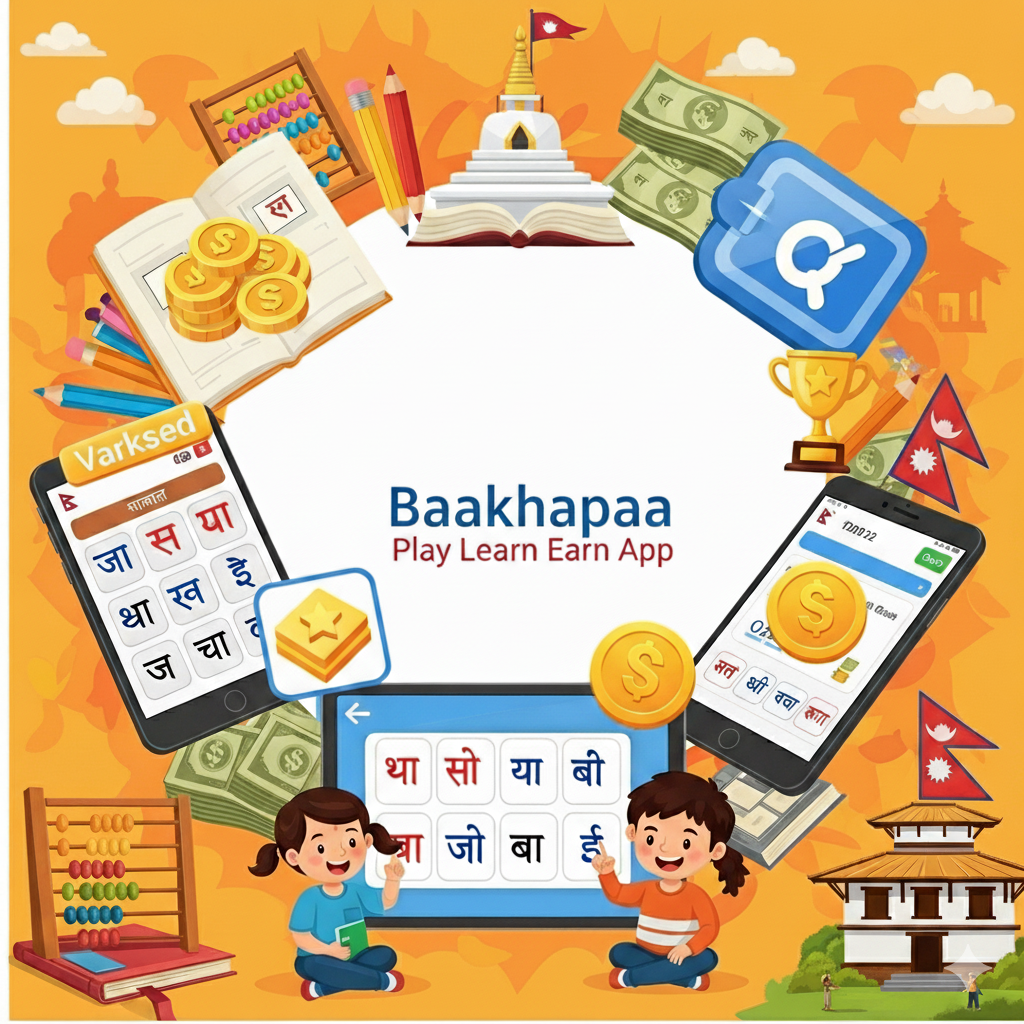Tech for Good Nepal: How Technology, Led by Innovations Like Baakhapaa, is Solving Everyday Problems in Our Communities
In the heart of Nepal, a silent revolution is unfolding. Beyond the global social media giants and e-commerce behemoths, a vibrant ecosystem of "Tech for Good" initiatives is taking root, directly addressing the unique challenges and enhancing the daily lives of Nepalis. In 2025, technology is not just a tool for connection; it's a powerful force for community transformation, driven by local innovation that truly understands the pulse of the nation.
This positive piece delves into how homegrown platforms and visionary startups are harnessing digital solutions to foster social impact, improve essential services, and create tangible positive change right here in our communities. At the forefront of this movement is the Baakhapaa App, a prime example of how localized tech can truly lead the way.
Baakhapaa App: A Local Beacon of "Tech for Good"
When we talk about technology solving everyday problems in Nepal, the Baakhapaa App stands out as a leading light. It’s more than just an application; it’s a pioneering social platform designed specifically for the Nepali context, fostering engagement, providing access, and offering tangible value directly to its users.
- The Problem It Addresses: Disconnected communities, limited access to local information and opportunities, and a need for direct, meaningful engagement that rewards active participation.
- The Solution: Baakhapaa creates a localized digital space where users can engage with relevant content, participate in community discussions, access local deals, and even connect with businesses. Its innovative reward system, integrated with the Baakhapaa Wallet, empowers users by turning their engagement into redeemable points, incentivizing positive interaction and digital literacy. This directly solves problems of access to information, economic participation, and community building in a uniquely Nepali way.
- Impact: By blending social interaction with utility, Baakhapaa actively contributes to digital inclusion, supports local commerce by driving traffic to businesses within its ecosystem, and provides a platform for community voice – a true embodiment of "Tech for Good Nepal."
Other Key Areas Where Tech is Making a Difference
Beyond Baakhapaa's unique model, numerous other tech initiatives are making significant strides:
1. Bridging the Financial Divide: Digital Wallets for Broader Inclusion
Digital payment platforms have fundamentally reshaped financial access across Nepal. While Baakhapaa offers its own unique reward-based wallet, established players like eSewa and Khalti continue to expand financial inclusion.
- The Problem: Limited access to traditional banking services, cash reliance, and complexities in paying bills, particularly in remote areas.
- The Solution: These platforms empower users to pay utility bills, top up mobile phones, book tickets, and conduct various transactions digitally. Khalti's "Smart Chhori Campaign," for instance, actively works to equip women and girls with crucial digital financial literacy, narrowing the gender gap in technology adoption.
- Impact: Enhanced convenience, efficiency, and broader financial accessibility, complementing the reward-based engagement fostered by platforms like Baakhapaa.
2. Greening Our Cities: Tech-Driven Waste Management
Addressing urban waste is a critical environmental and social challenge in Nepal.
- The Problem: Inefficient waste collection, lack of proper segregation, and the marginalization of informal waste collectors.
- The Solution: Khaalisisi (meaning "empty bottle" or "waste" in Nepali) utilizes a mobile app to connect waste generators (households, businesses) directly with waste collectors. Users schedule pickups for recyclables, ensuring systematic collection and providing a dignified, organized livelihood for waste workers.
- Impact: Improved waste collection efficiency, increased recycling rates, and significant social empowerment for waste collectors.
3. Cultivating Growth: Technology in Agriculture
Agriculture, the backbone of Nepal's economy, is benefiting from targeted tech solutions.
- The Problem: Farmers, especially smallholders, often lack immediate access to information on plant diseases, pest management, and best farming practices.
- The Solution: Projects like TelePlantDoctor, an AI-powered mobile app in collaboration with the Food and Agriculture Organization (FAO), allow farmers to diagnose plant diseases simply by taking a picture, offering instant advice. Other digital initiatives are connecting rural farmers directly to broader markets, improving their reach and profitability.
- Impact: Enhanced agricultural productivity, reduced crop loss, and improved farmer livelihoods, contributing to better food security.
4. Digitalizing Governance: Streamlining Public Services
The Nepali government is also embracing technology to improve citizen-state interactions and enhance efficiency.
- The Problem: Bureaucratic hurdles, manual processes for accessing public services, and limited accessibility, especially for citizens in remote areas.
- The Solution: The Nagarik App aims to centralize access to various government services, including citizenship details, passport information, and PAN registration. Online tax filing systems and digital utility bill payments (e.g., NEA App) are also streamlining administrative processes, making public services more accessible.
- Impact: Increased transparency, efficiency, and convenience in government service delivery, moving towards a more digitally empowered citizenry.
In 2025, the "Tech for Good" movement in Nepal is a testament to the power of localized innovation addressing everyday challenges. With pioneering platforms like Baakhapaa App leading the charge in community engagement and rewarding participation, alongside vital advancements in financial inclusion, waste management, agriculture, and governance, technology is truly making a tangible difference in the lives of ordinary Nepalis, building stronger, smarter, and more resilient communities.
Please login to leave a comment.


 Rakesh Rajbhat
Rakesh Rajbhat




